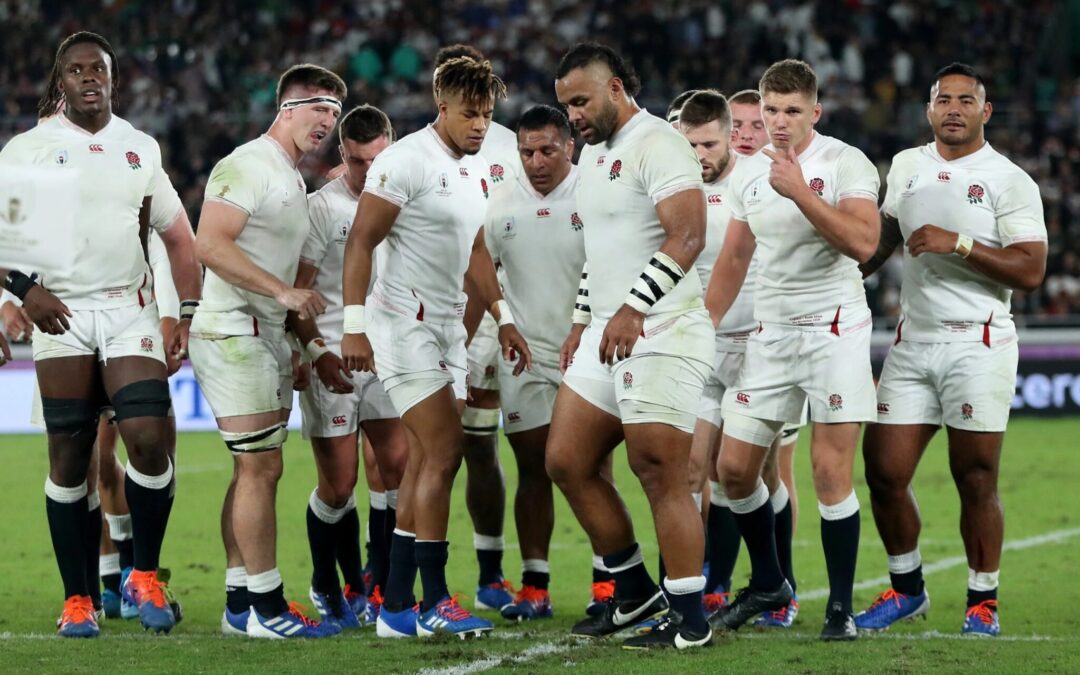
Peak Performance
What happened to England in the world cup rugby final? I have a theory about this and I share it with you now.
As England fans hauled themselves out of bed to view the early morning cup-final kick-off beamed around the UK from Yokohama most believed their team just needed to turn up on the pitch to easily carry off the most coveted trophy in world rugby. As the fervent faithful gathered at rugby clubs and pubs for their early morning pints, full English breakfasts and sporting bonhomie the atmosphere was slightly tense but entirely optimistic. We were going to win. Of course we were. Any other outcome was impossible to imagine after our complete semi-final demolition of the mighty all blacks, the current champions and universally considered best team in the world. If we could beat them so comprehensively then our opponents in the final, South Africa didn’t stand a chance. After all, they lost to New Zealand in the group stages earlier in the tournament. But if sport teaches us anything at all it is the total fallacy of the equation that if A beats B and B beats C then A must beat C. No mate. It doesn’t work like that at all. There would be no point in bothering to play some of the games if it was true. By half time the bacon butties were causing acute indigestion and the milk was curdling in the tea. England were losing and no team that had been losing at half time in the world cup final had ever come back to win. And neither did England. But why? They played so well in the semi-final and yet were beaten easily in the final. I hate to sound like a bighead but I wasn’t entirely surprised. I felt it coming for two main reasons. First, most players and fans were talking as if our win was a foregone conclusion. Never a good thing in top sport.
After the semi-final everyone was confident and buoyant, that’s okay, but they totally underestimated the quality, toughness and determination of the springboks who had crept their way unexpectedly into the final. However, the bottle green boys also had an extra motivation. The chance to heal a divided nation. Their black captain, Siya Kolosi, who had clawed his way from township slums to become leader of this elite sports team in a country that places such huge value on the importance of sport, particularly rugby, was an inspirational boost. He wanted to inspire every kid in South Africa. This provided a motivational element felt by all his players which is something that can’t really be coached. It is an intrinsic belief. But there was another, more crucial element that can most certainly be coached and which was possibly an oversight by the England coaching team. The team had peaked in the semi-final and didn’t have enough left in the tank to compete in the final. They were drained. What England did to New Zealand in the semi, South Africa did to England in the final. Started quickly, took the initiative, gained control, scored early and retained the momentum. England struggled to get on terms, particularly in the scrum, because they had played their final a week too early. When coaching teams or individual athletes you don’t want them to peak in the first round or any other round. You want them to peak in the final. If they don’t make it to the final then you shake hands with your opponents, examine everything that happened and make the changes needed to bring about a better outcome next time. But if you peak too early you’re unlikely to win. The team that wins is usually the team that peaks in the final. In this case South Africa without a doubt. But if you consider the unifying and positive effect this victory will have on the rainbow nation, a country scarred badly by historical racial hatred, we shouldn’t be too disappointed.
‘Sport has the power to change the world. It has the power to inspire. It has the power to unite people in a way that little else does. It speaks to youth in a language they understand. Sport can create hope where once there was only despair. It is more powerful than government in breaking down racial barriers.’
– Nelson Mandela
